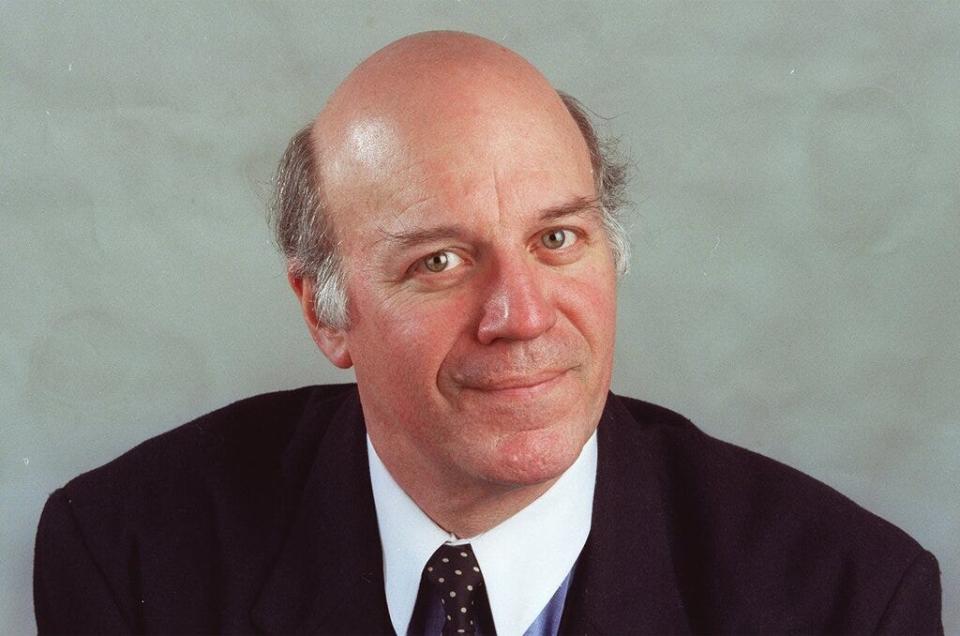Opinion: Creating 'villages' on Cape Cod so seniors can age in place
There are communities you drive through with stoplights, stores, “Welcome to” signs and all that. There are virtual communities, lovers of hairless cats, folks on Zoom occupying a screen together.
Somewhere between these two extremes are the kinds of communities I want to tell you about today. These are communities, also known as "villages," formed and bound together on the basis of need on one hand and eagerness to help on the other.
Every village begins with a local, grassroots effort by a few volunteers in the community who want to help their aging neighbors thrive. Consequently, though villages have their fundamental approaches in common, they may vary somewhat in the details. All of them complement what senior centers, Elder Services of Cape Cod & the Islands and other service organizations on Cape have to offer.

Villages are, by design, organized to help "seniors" who want to age in their homes and communities but may need a little help to get around or for small tasks in the home. Their services include organizing social events, in-home projects and minor household repairs, changing smoke and carbon monoxide alarm batteries, hanging pictures, changing light bulbs and taking out trash barrels, to name a few.
“Villages” offer transportation to and from medical appointments, hairdressers, barbers, grocery shopping and trips to senior centers. The villages offer technical assistance with PC and Mac computers, cellphone and tablet setup, and help with printers, TVs and remotes.
Taking a toll: Some Cape Cod nursing homes prove unsafe for residents due to labor shortage
There are now five villages serving parts of Cape Cod and the Islands. You can Google these by name: Neighborhood Falmouth, Barnstable Neighbor 2 Neighbor, Bay to Sound Neighbors, Nauset Neighbors and Vineyard Village at Home. Together, they serve more 500 Cape Codders. Organizations are not yet up to cover Mashpee, Sandwich, Truro or Provincetown.
Google to find the “village” closest to you. Schedule an in-home visit to discuss your needs and see how the organization can help you. Membership fees are reasonable; reduced fees are offered based on need.
Why are there fees at all? Because even if volunteers and administrators almost always work for free, brochures, mailings and liability insurance all cost money — especially the last item. Part of the annual fees supports the national organization.
Opinion:: To my readers: how to change the world for the better
The first “village” opened in Boston’s Beacon Hill neighborhood in 2001 and has been growing ever since. There are currently more than 250 operating villages and 50 developing villages in 45 states across the country. There is a national organization called the Village to Village Network based in Chicago that assists and mentors newly forming villages.
When I first heard of all this, I was confused. Neighbor to Neighbor, Village to Village, which was it? Then I realized that different communities have their own names for their particular village.
"One of the best things I ever did,” said one Barnstable member. “Every volunteer I have come into contact with has been wonderful and incredibly helpful. They are organized and screen the volunteers well because everyone is great. I tell everyone about them.”
Addressing the housing shortage: Considering an accessory dwelling unit for your property? Here's a guide
New volunteers are thoroughly screened and vetted. If you or a loved one need help, that’s good to know before opening your doors to someone new. Volunteers are covered by the organization's liability insurance unless driving, where the owner’s auto insurance covers things.
COVID disrupted the system badly. People drastically reduced contacts. Volunteers were reluctant to be exposed — as were clients. Consequently, the volunteer networks need to be rebuilt. Often in this space, I tell you about organizations’ benefits to our community — and their need for funds. Here, they need volunteers.
Related: Food pantries for veterans extends from Hyannis to Eastham and Falmouth
Don’t worry about being overwhelmed. Each morning, the corps of volunteers get an email, listing who in the community needs what. Too busy? You can pass and leave others to fill in. You only take on what you can handle.
Meanwhile, as we emerge from COVID, we are reminded that loneliness is the silent plague of our age. While the internet promised to link the world, it has instead isolated teens and people of all ages. The old bowling leagues and civic organizations — even in-store shopping — are withering. Volunteers stand to gain as much as the people they visit.
Zero emissions: Cape Air intends to buy 75 sleek electric commuter airplanes
Contacts, face to face, remind us of something fundamental. As much as we need help, we need to give, too. Human connectedness and open-heartedness, are as vital to us as air. Here’s a growing movement already serving some 700 souls on Cape Cod.
Consider where on the spectrum, needful — or in a position to help out — you belong, then check out the “village” near you. You might be surprised who benefits most.
Lawrence Brown is a columnist for the Cape Cod Times. Email him at columnresponse@gmail.com.
This article originally appeared on Cape Cod Times: Cape Cod: Village to Village volunteers help seniors age in place

